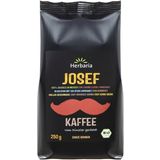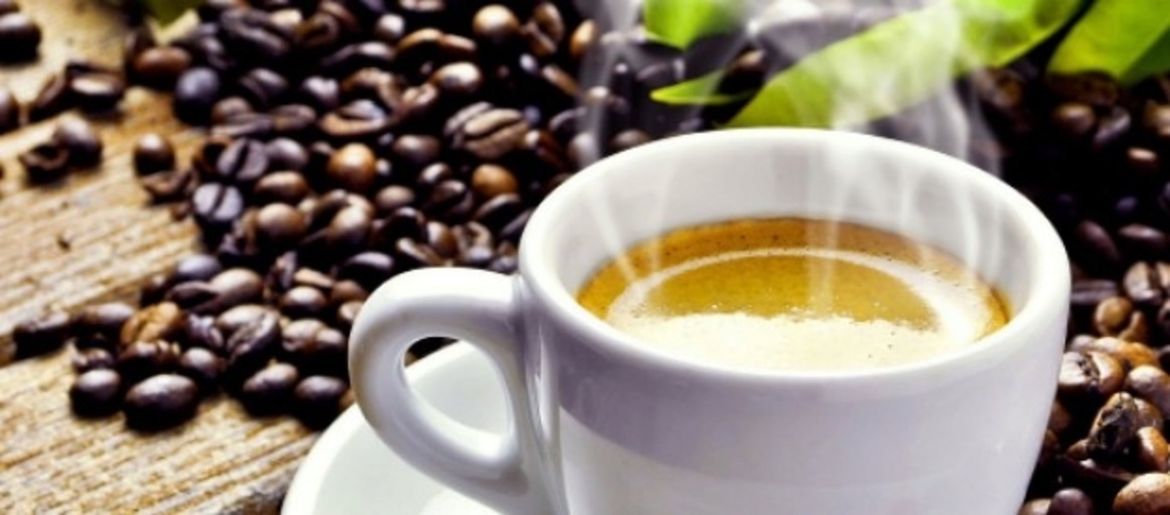Welcome to the World of Coffee!
Everything you've always wanted to know about coffee.
Coffee: How It All Began
Today we believe that coffee's origins date back to the 9th Century. According to the legend, Ethiopian goatherds noticed that their goats were particularly lively after eating red fruit from a particular shrub. As a result, the goatherds decided to try the fruit themselves. Since they weren't impressed with the bitter taste of the raw berries, they threw the fruit into the fire, accidentally discovering that when the beans are roasted they have a wonderful fragrance. Unable to resist, the shepards began roasting the beans regularly, steeping them in water to release their flavour. This is how coffee was born!
A Drink Enjoyed Around the World
Coffee spread first from Ethiopia and immediately became popular in the Middle East and Arabian peninsula. Then, in the 16th century, coffee arrived in Europe. Contrary to popular belief, it was not the Turkish siege of Vienna that brought coffee culture to Europe, but European scholars who brought the drink back from their travels in the Middle East.
Back in those days, coffee was enjoyed primarily by the aristocracy and the upper class. By the middle of the 17th century, the first coffee houses were already serving up coffee in France, Italy and England. Poorer citizens often resorted to coffee alternatives such as chicory or malt coffees, which today are becoming more popular again. Real coffee was often drunk on Sundays and on special occasions.
How Coffee Grows
Originally the coffee plant grew exclusively in the Middle East and Africa. For economic reasons, the French and Dutch started to cultivate coffee plants in their overseas colonies. The Portuguese then brought the plant to Brazil. In South America, coffee plants were brought simultaneously to the European colonies. This is a particularly dark chapter in coffee's history as African slaves were captured and brought to Caribbean and Latin American plantations in order to supply the demand for coffee crops.
Types of Coffee
There are several different types of coffee. Arabica and Robusta beans are the most important types. These beans have several distinguishing characteristics:
- Arabica : This variety is considered the highest quality variety. It dominates around 60 percent of the coffee trade around the world and grows mainly in the highlands of Brazil, Colombia and Kenya. Due to the high altitudes at which it grows, this type of coffee is referred to as "highland" coffee. The coffee is noted for its acidity and slight bitterness as well as its light, fruity notes.
- Robusta: This coffee variety grows in regions at up 600 meters above sea level and is more resistant and productive than the Arabica plant. The taste is characterized by less acidity and stronger bitterness. Robusta beans give coffee its full body.
Coffee is one of the most important products for developing countries today. About 25 million people around the world work in coffee cultivation, processing and sales. Brazil is the world's largest coffee producer, followed by Vietnam and Colombia. Fair trade coffee is also becoming more popular as people grow more aware of the economic disparity that still haunts coffee cultivation. The designation "fair trade" means that a much larger percentage of the coffee sales remain with the coffee farmers and plantation workers.
Facts About Coffee:
Did you know that ...
... the famous French writer Honoré de Balzac allegedly drank 50 cups of coffee each day?
... Johann Wolfgang von Goethe discovered that coffee contains caffeine?
... the Swedish King Gustav III had an experiment done to prove that coffee was deadly? Don't worry, everyone survived ;)
... Johann Sebastian Bach wrote a coffee cantante?
... the word mocha comes from the name of the Yemeni port city al-Mukha?
... coffee grounds are an excellent garden fertiliser due to their high content of organically bound nitrogen?
... coffee is particularly rich in antioxidants?
Coffee simply makes the world go round!
Related products
-
 3.5 (2)
3.5 (2)Herbaria Organic "Josef" Whole Bean Coffee, Whole Bean Organic 250 g
- Sweet nutty aroma
- Low acid
- Ideal for fully automatic coffee machines
€ 13,59 (€ 54,36 / kg)Not available at the moment
Magazine Articles:
Discover Piccantino :
-
Austria: Free standard delivery from € 54,90
-
Free
returns -
24-hour shipping
More than 12.650 products

